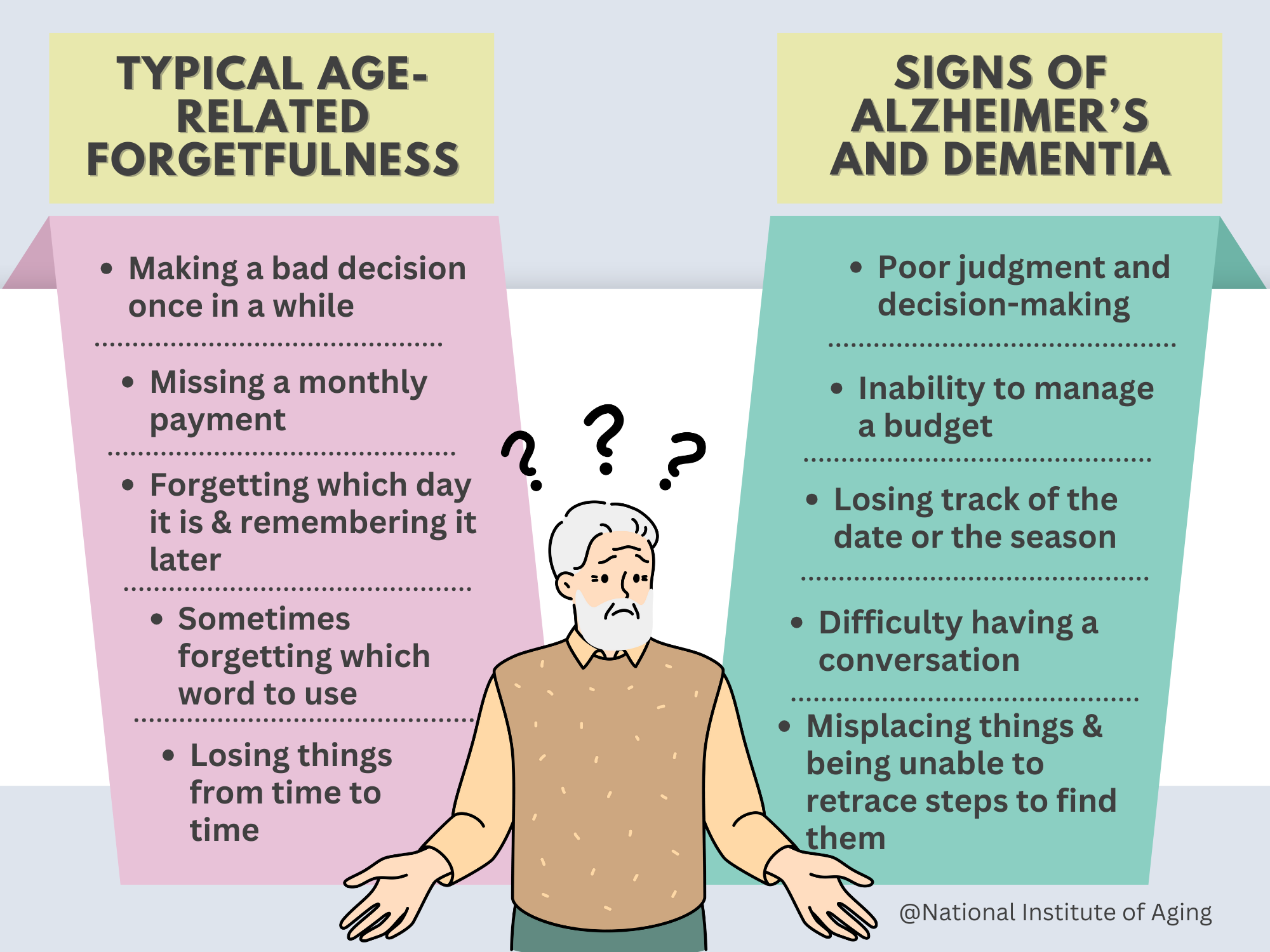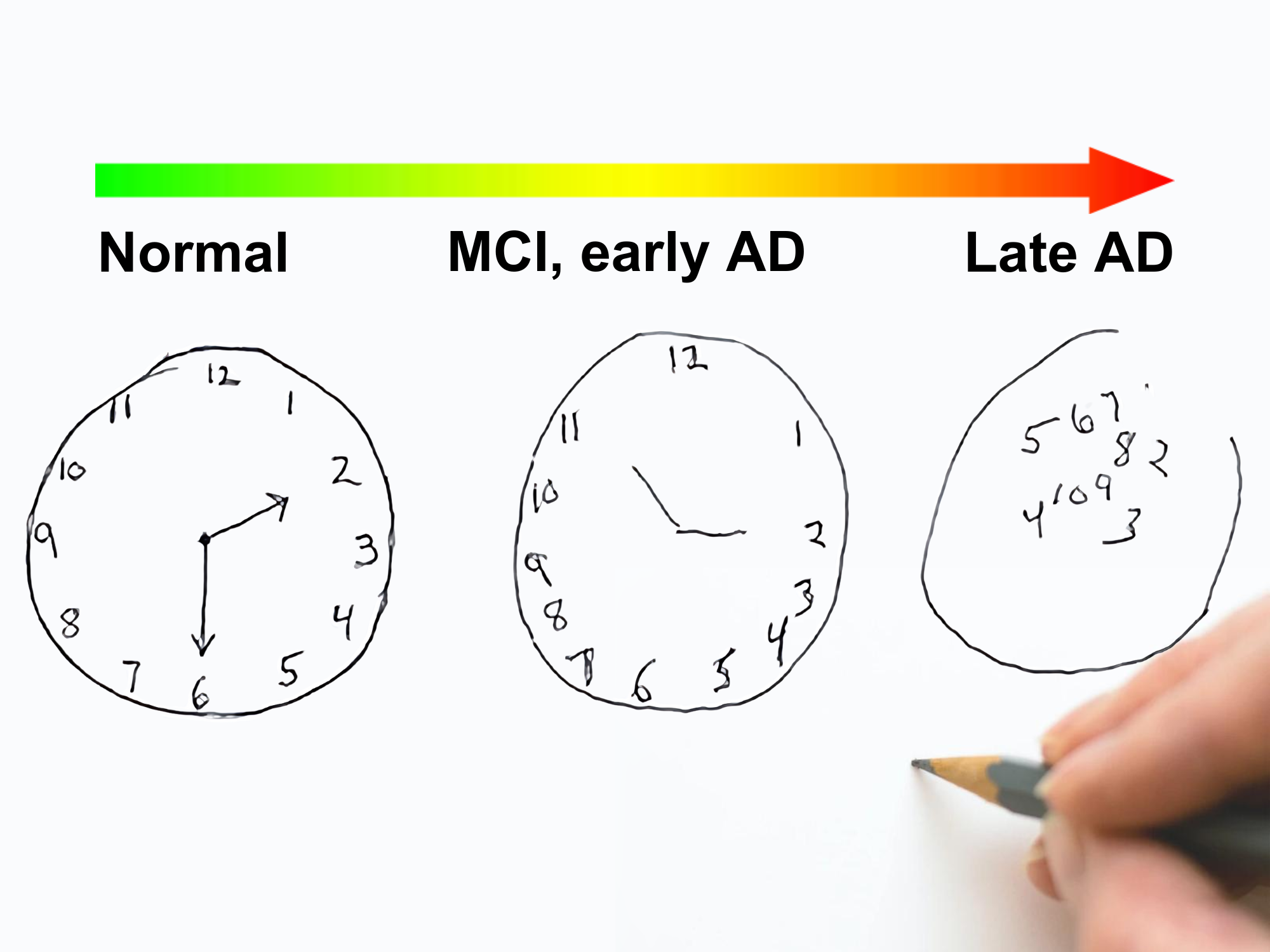Is Forgetfulness Just a Part of Ageing?

"Where did I leave my keys?" "Have you seen my phone?" "What day is it today?" These moments of forgetfulness have become a familiar part of my routine, leaving me to wonder, "Is this just aging, or is it something more serious?" While occasional memory lapses are a normal part of getting older, when they become more frequent and start affecting daily life, it’s hard not to worry—could this be Alzheimer's disease?
Alzheimer’s doesn’t only affect the elderly; it can appear as early as one’s 30s or 40s, known as early-onset Alzheimer’s1. This condition becomes increasingly common with age, affecting approximately 55 million people worldwide2, a number expected to double in the next two decades.
So, how do you know if it’s just age or something more?
Alzheimer’s differs from typical age-related forgetfulness by its profound impact on daily life3. While normal aging might cause you to misplace your spectacles and later remember where they are, Alzheimer’s could lead you to place them in unusual spots, like the refrigerator, and struggle to recall how they got there, sometimes even leading to suspicions that others have stolen them. One of the earliest and most telling signs of Alzheimer’s is repeatedly forgetting recently learned information or conversations. Imagine asking the same question or making the same comment multiple times within minutes—not out of habit, but because the memory simply isn’t there. This troubling pattern gradually disrupts everyday life.
Diagnosing Alzheimer’s is tough, especially with a shortage of specialists, leaving caregivers to confront these unsettling changes and seek help. In these situations, tools like Clock Drawing Test4 can be a lifeline. This simple test, where individuals are asked to draw a clock showing a specific time, provides insights into cognitive functions such as planning, memory, and spatial awareness. It’s a quick way to identify potential issues before they worsen. For someone with Alzheimer’s, this task becomes increasingly difficult (see Figure 1), revealing issues such as:


Figure 1 Representative examples of Clock Drawing Test images at different stages of Alzheimer’s disease progression. “Normal” (left) an image from an individual with no obvious signs of disease; “Mild Cognitive Impairment” (center) is a patient in an early stage of decline; “Late Alzheimer’s disease” (right) exemplifies an image from a patient with severe dementia.
- Spatial Disorientation: Struggling to place numbers correctly around the clock face.
- Sequencing Issues: Difficulty arranging the clock hands or placing numbers in order.
- Executive Function Deficits: Challenges with planning and organizing, leading to a disorganized clock face.
- Memory Impairments: Forgetting the specific time to draw or how a clock should look.
If you or a loved one are experiencing memory decline, don’t just attribute it to aging. Use the Clock Drawing Test and consult a healthcare professional for comprehensive evaluation, including neuroimaging or detailed cognitive assessments.
Early detection is vital for effective management and maintaining quality of life. To support cognitive health, engage in mental exercises, maintain a balanced diet, stay active, and nurture social connections. These steps can help manage symptoms and potentially slow Alzheimer’s progression.
Be proactive—your future self will thank you.
References:
- Hendriks, S. et al. (2021). Global Prevalence of Young-Onset Dementia: A Systematic Review and Meta-analysis. JAMA neurology, 78(9), 1080–1090. https://doi.org/10.1001/jamaneurol.2021.2161
- 2024 Alzheimer's disease facts and figures. (2024). Alzheimer's & dementia : the journal of the Alzheimer's Association, 20(5), 3708–3821. https://doi.org/10.1002/alz.13809
- Know the 10 signs of Alzheimer’s disease. Alzheimer’s Disease and Dementia. https://www.alz.org/alzheimers-dementia/10_signs
- 4. Khan, T. (2016). Clinical diagnosis of Alzheimer’s disease. In Elsevier eBooks (pp. 27–48). https://doi.org/10.1016/b978-0-12-804832-0.00002-x
